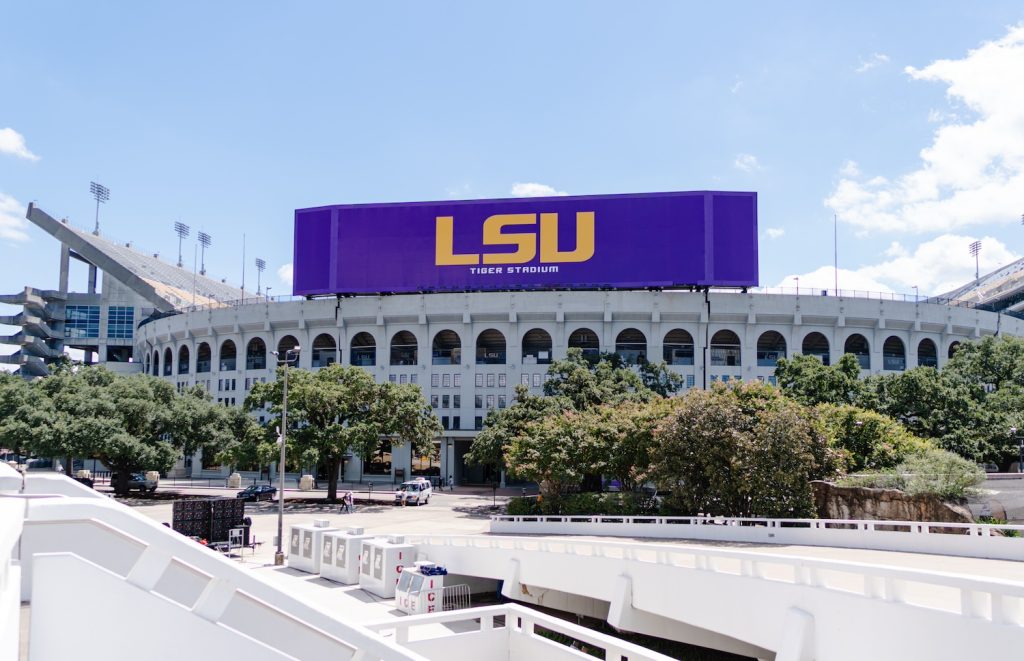An Audit of Silence: How a Lack of Documentation at LSU Could Be Muzzling Student-Athletes

The conversation around student-athletes is changing, with their power and influence growing by the day. They have a voice, newfound economic freedom, and a seat at the table in the business of college sports. But as one investigation into Louisiana State University reveals, that voice may be going unheard, or at least unrecorded.
A public records request submitted by the Louisiana Illuminator and Tiger Rag for five years of player exit interviews uncovered a troubling trend: for most of its athletic programs, LSU isn’t documenting the feedback it receives from student-athletes. This includes high-profile teams like football, men’s basketball, and gymnastics, leaving more than a thousand athletes unaccounted for over a five-year period.
The interviews are a mandate from the NCAA. Under Bylaw 8.3, every NCAA Division I school is required to conduct these discussions with a sample of graduating or eligibility-expired athletes. The purpose is to give students a formal platform to provide feedback on everything from their experiences to the administration of their specific sports. But when confronted with the findings, an LSU athletics spokesman, Zach Greenwell, said the university is in compliance with the rule but that the interviews aren’t always documented, which the NCAA does not require.
This lack of documentation, according to experts, raises significant red flags. While LSU maintains it’s following the rules, the question becomes: what is the point of a bylaw if there is no accountability to prove its enforcement? As Molly Harry, a sports management professor at the University of Florida, noted, the absence of records is a disservice to athletes and brings into question whether the interviews are even happening at all. “Athletes are gaining power economically, as we speak,” Harry said, “but that doesn’t necessarily mean that they have the more procedural power in the athletics department. These exit interviews could potentially lead to changes in the future through that procedure.”
When a handful of interviews were documented—64 forms in total—they painted a picture of serious issues, including multiple allegations of bullying and intimidation by swimming and diving coaches, as well as general complaints about facilities and coaching. This glimpse into the undocumented world of student-athlete feedback suggests that without a formal record, critical information that could lead to institutional change is simply lost.
The lack of documented interviews from men’s sports is particularly concerning. According to Professor Harry, male athletes often face worse academic and social experiences than their female counterparts, and high-profile teams like football and basketball have particularly taxing schedules. By not formally gathering feedback from these programs, the university is missing a crucial piece of the puzzle, potentially failing to identify systemic issues before they escalate. Allison Smith, a professor of sport management at Georgia State University, sees this as a fundamental weakness in the NCAA’s governance model, noting that the organization’s reliance on self-policing by member institutions is a major flaw. “The NCAA needs to uphold what the member institutions are doing regarding their bylaws,” Smith said.
The fact that these records came to light at all is a testament to the power of a free press. LSU initially attempted to deny the public records request, citing a federal law that protects student information. It was only with the assistance of the Tulane First Amendment Law Clinic that the Louisiana Illuminator and Tiger Rag were able to obtain the documents, which were heavily redacted to protect student privacy.
In an era where the well-being and rights of student-athletes are at the forefront of the conversation, this investigation serves as a stark reminder of the need for greater transparency. A verbal acknowledgment of an interview isn’t enough; true accountability requires a documented record, a paper trail that proves a university is not only listening but also acting on the concerns of the young people who bring in billions in revenue. Without it, the voice of the student-athlete risks becoming nothing more than a whisper lost in the wind.

